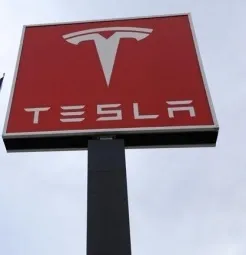Did Tesla Reclaim the Top Spot in S. Korea's Imported Car Sales?

Synopsis
Key Takeaways
- Tesla leads the imported car sales in South Korea with 7,357 units sold in July.
- The Model Y is the top-selling model, highlighting consumer preference for electric vehicles.
- Overall registrations of imported cars have seen significant growth, increasing 23.3% year-on-year.
- KAIDA reports a surge in imported vehicle registrations, now accounting for 18.3% of the market.
- German brands continue to dominate the market alongside Tesla.
Seoul, Aug 5 (NationPress) The prominent US electric vehicle company Tesla has once again seized the top position in South Korea's imported automobile market during July, primarily due to remarkable sales of its Model Y, as indicated by industry data released on Tuesday.
The Korea Automobile Importers & Distributors Association (KAIDA) reported that 27,090 imported passenger vehicles were registered in the previous month, marking a significant increase of 23.3 percent compared to 21,977 units in the same month last year, according to Yonhap news agency.
KAIDA has attributed this surge in sales to enhanced supply conditions for various brands relative to last year.
Tesla led the rankings with sales of 7,357 units in July, reclaiming its number one position after losing it in June. The company initially reached the top spot in May. Following Tesla, BMW sold 6,490 units in July, and Mercedes-Benz secured third place with 4,472 units.
The Model Y emerged as the most popular model, with 6,559 units sold, followed by the BMW 520 at 1,292 units and Tesla's Model 3 at 798.
In terms of fuel types, hybrids represented 49.7 percent of sales at 13,469 units, while electric vehicles accounted for 37.6 percent, gasoline models constituted 11.5 percent, and diesel vehicles made up 1.2 percent.
Moreover, the registration of imported vehicles in South Korea has seen a staggering 38-fold increase over the last thirty years, reflecting evolving consumer preferences, as stated by an industry association.
Annual registrations of imported cars grew from merely 6,921 units in 1995 to 263,288 last year, according to KAIDA’s press release.
"Imported brands will continue to provide a wide array of differentiated options for Korean consumers, just as they have over the past three decades," remarked KAIDA Vice Chairman Jung Yoon-young.
In the first half of the current year, sales of imported vehicles rose by 9.9 percent year-on-year, reaching 138,120 units, driven by robust demand for German brands and the U.S. electric vehicle manufacturer Tesla Inc.
Three German automakers—Volkswagen Group Korea, BMW Group Korea, and Mercedes-Benz Korea—together sold 84,211 cars during the January to June period, reflecting a 12 percent increase compared to the previous year.
KAIDA’s membership has expanded from eight firms in 1995 to 23 as of June this year, with vehicles now marketed under 30 distinct brands.
In March, the Chinese electric vehicle manufacturer BYD Co. joined the association as part of its strategy to increase its footprint in Asia's fourth-largest economy.
Last year, imported brands accounted for 18.3 percent of South Korea's passenger car market, a significant rise from just 0.6 percent in 1995, as reported by the association.









